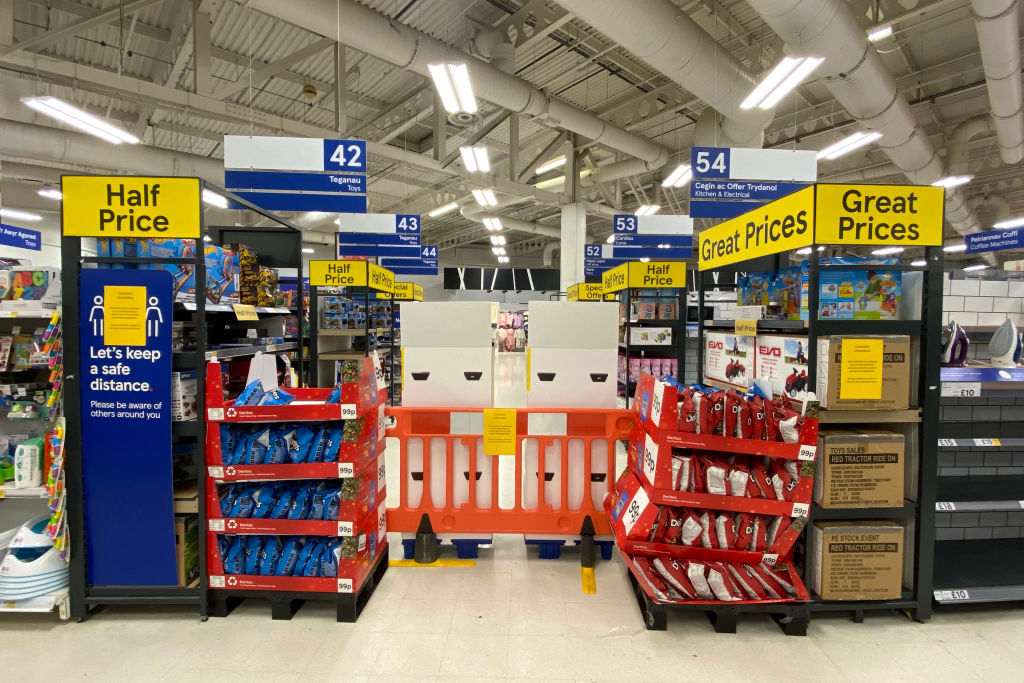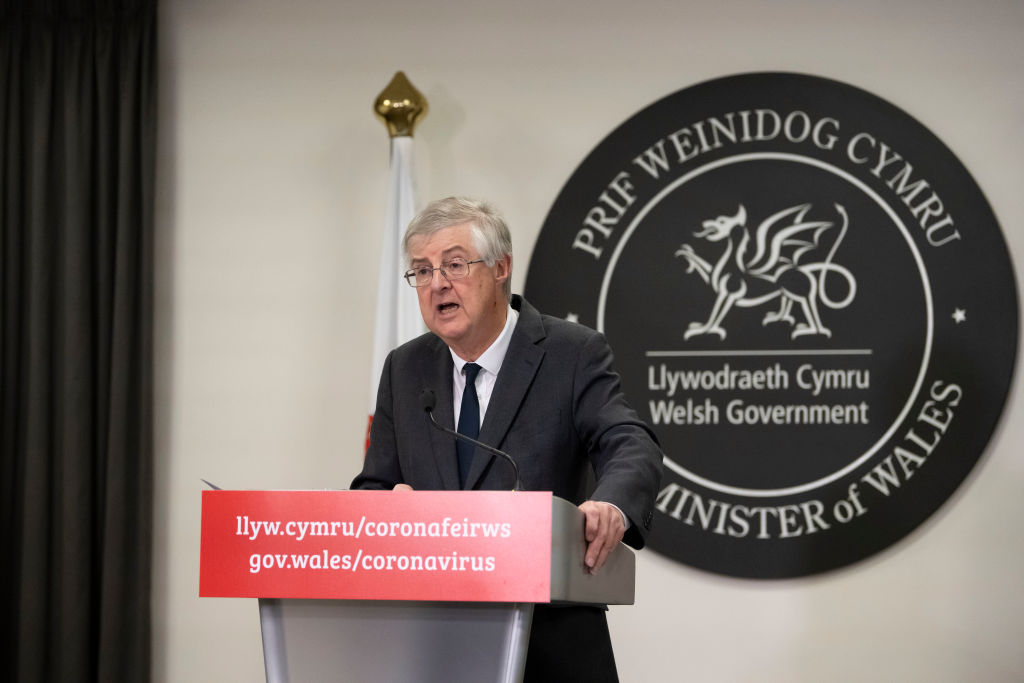Infections are rising. Hospitals will be overwhelmed. And very soon the vulnerable will start to die. From today, the Welsh First Minister Mark Drakeford is closing down Wales with one of the strictest lockdowns in Europe, shuttering all but essential shops. For the next 17 days, hotels, pubs, restaurants and for a while, schools, will be closed as well. That is meant to fight Covid-19. And yet now the small print is emerging it is increasingly looking like something else is going on in Wales: a war against the economy and the free market.
It would be easy to imagine that the Welsh lockdown is very similar to the national one in April and May. In most ways it is. Just about everything has been closed down, expect for a few shops and services that are completely vital to keep everyone alive as they huddle down at home. But this week we learned the Welsh First Minister Mark Drakeford has decided to take it one step further. Apparently not only will ‘non-essential’ shops have to close, but the few that remain open will also be banned from selling ‘non-essential’ items.

Want to buy some socks at Tesco? Sorry, not allowed. Aftershave at Boots? Forget it. Or pick up a book, perhaps, while filling up the car with petrol? That isn’t going to be permitted. Apparently, according to Drakeford, he has to create a ‘level-playing field’ so that some shops don’t have any ‘unfair advantage’ during lockdown. ‘We will be making it clear to supermarkets that they are only able to open those parts of their business that provide essential goods to people,’ Drakeford told the Welsh Parliament in Cardiff. What exactly counts as essential and non-essential hasn’t been decided yet – even though Welsh retailers have already reacted with alarm – but no doubt the First Minister will decide in due course.
But hold on. That is both crazy, and slightly sinister. The point about lockdowns is to suppress infections. You can argue about whether they are an effective way of doing that. The evidence, to put it mildly, is very mixed so far: it is hard to see how shutting down a hardware store in Pembrokeshire does much to control an outbreak of Covid-19 in the halls of residence at Swansea University. But whether they are good or bad public health policy, surely one thing is obvious. The purpose is not to create level-playing fields between companies, or to destroy competition.
Where will this end? Is Drakeford planning to ban Amazon deliveries (because, er, surely that is ‘unfair’ on bookshops that have had to close their doors) or Netflix streams (seems sort of unfair on the local Odeon) or Zoom (hardly fair on local office landlords)? Indeed, it might well be safer to close down the internet, and then perhaps the postal service as well (those sneaky mail order catalogues might come back). And then when he does get around to listing ‘essential’ items, it would probably be safer to ration them as well, since otherwise some shops might run out of permitted items while others didn’t, and that too would hardly be ‘fair’.
It is enough to make you suspect that it is not really Covid-19 Drakeford doesn’t like, but competition, free markets, and indeed any form of business not controlled by the state. He is starting to turn Wales into a wartime, command economy: East Germany, except not as efficient, and with more sheep. If that is what the Welsh really want, then fine – but it is hard to believe it will end any better than any other command economy has ever done.






Comments